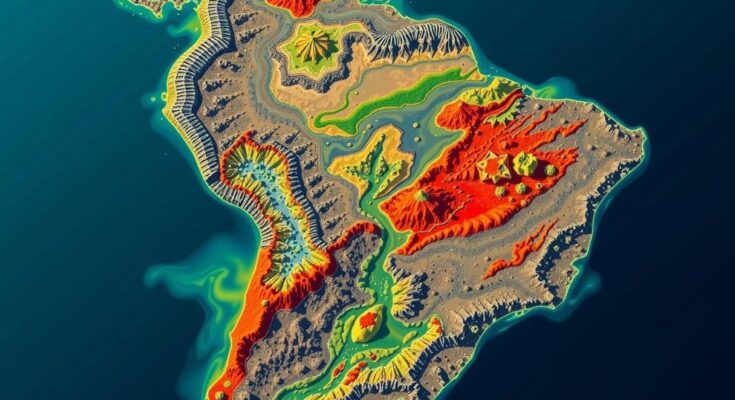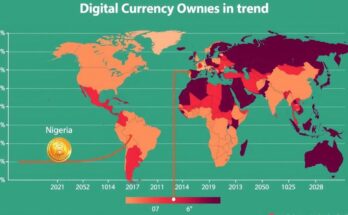Brazil and Argentina have signed a memorandum of understanding to study the potential for natural gas exports from Argentina’s Vaca Muerta formation. The agreement aims to establish infrastructure that could allow Brazil to import up to 30 million m³/d of gas by 2030. A working group will explore various gas transport routes, addressing Brazil’s rising energy needs.
On November 18, 2024, Brazil and Argentina formalized an agreement aimed at developing infrastructure for natural gas exports, particularly focusing on resources from Argentina’s Vaca Muerta formation. The initiative includes the formation of a working group tasked with evaluating the necessary measures for the viability of gas supply from Argentina to Brazil. Brazilian authorities anticipate that imports could reach 30 million cubic meters per day by 2030. Brazil’s growing energy demands necessitate such a collaboration as local gas production has fallen short. The agreement outlines several potential transport routes for the gas, including adjustments to Bolivia’s pipeline and alternative routes through Paraguay and Uruguay. Additionally, the firms will explore a direct link at Uruguaiana, a bordering city in Brazil. The Brazilian Mines and Energy Minister indicated that immediate potential is for 3 million cubic meters daily, expanding to 30 million by the decade’s end.
Brazil, the leading crude oil producer in Latin America, faces a shortfall in natural gas production, exacerbating domestic energy demands. This challenge underscores the strategic importance of sourcing natural gas from the Vaca Muerta formation in Argentina, which is recognized for its extensive shale gas reserves. Argentina’s state-owned YPF is spearheading efforts to enhance energy exports, positioning Vaca Muerta as a vital component of regional energy security and economic stability. Through mutually beneficial cooperation, Brazil aims to diversify its energy supply to ensure sustainability and growth.
The formal agreement between Brazil and Argentina marks a significant step in strengthening regional energy cooperation. By evaluating gas exports from the Vaca Muerta formation, both countries can work towards meeting Brazil’s increasing energy demands while establishing Argentina as a major player in energy exports. The planned routes and infrastructure developments represent an essential investment in the future energy landscape of Latin America.
Original Source: www.worldpipelines.com




